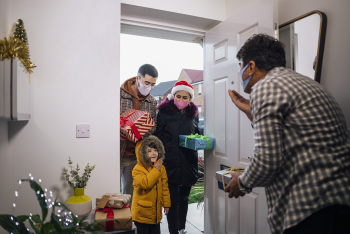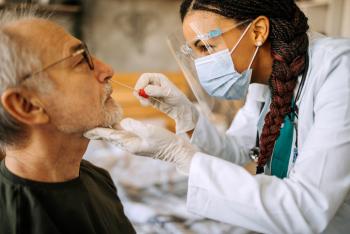Long COVID refers to a range of persistent symptoms that can linger for weeks, months or years after...
Read More
As we near the end of December, it is clear that the South Jersey community has championed what it means to come together in times of need. Since earlier this year, the world conformed to a “new normal”—sadly, one filled with masks and social isolation. Upholding these efforts was not easy, but it helped to strengthen South Jersey against the novel coronavirus. And now, we must do it again.
To protect patients, staff and visitors, Inspira has adopted the data-driven, three-tiered visitation system developed by the New Jersey Hospital Association and New Jersey hospitals, which ranges from limited to restricted external visitation. Adjusted on a weekly basis, the new guidelines are the latest effort to slow the spread of COVID-19 as cases begin to spike locally and nationwide.
“Nowhere do we understand the impact of social isolation more than in our hospitals,” said Dr. Evelyn Balogun, Medical Director of Inspira Urgent Care. “In March, we weren’t sure if providers would be safe to live at home with their families. Thankfully, we now have a clearer picture about not only how this virus spreads, but also the best ways to prevent contracting it, even in the hospital setting—like limiting the number of people in a poorly ventilated space indoors.”
The new visitation levels are:
“As providers, our job is to treat our patients, no matter how sick they are, to the best of our ability. However, people often forget we must cater to the emotional side of our patients’ needs,” said Dr. Balogun. “In non-pandemic times, loved ones could be present for the scariest and happiest milestones. But now, patients are left to experience their care alone. That is why we must do what we can to bridge our patient care to their personal life and make sure loved ones know they would be here if it was safe.”
Whether you’re educating patients about the new visitation guidelines or helping friends and family connect virtually with their loved ones, know that each of your interactions has a direct impact on our community. Here are tools you can use to help patients can keep their loved ones involved with their care:
“Health care providers have been the first line of defense against COVID-19, and rarely do they think about their own mental health needs. So, here’s your self-care checkpoint: Remember to take care of yourself too—whatever that looks like to you,” said Dr. Balogun. “If it’s going for a daily walk, designating a time to call friends or asking for assistance, make sure you are taking the time to do so. You matter too.”

Long COVID refers to a range of persistent symptoms that can linger for weeks, months or years after...
Read More
A Very COVID Christmas: How to Celebrate Safely
Read More
After more than two years of masks, social distancing and travel restrictions, this winter is likely...
Read More
The material set forth in this site in no way seeks to diagnose or treat illness or to serve as a substitute for professional medical care. Please speak with your health care provider if you have a health concern or if you are considering adopting any exercise program or dietary guidelines. For permission to reprint any portion of this website or to be removed from a notification list, please contact us at (856) 537-6772